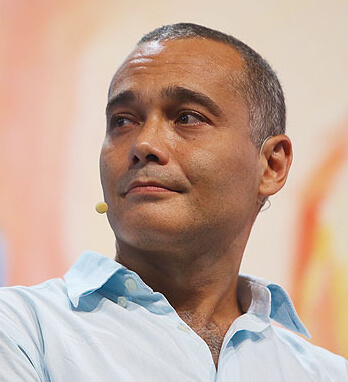Twelfth International Summer School on Mind, Brain and Education
2017 September 1–7
Neuroscience of poverty
Director of the School: Antonio M. Battro
Director of the Course: Sebastián J. Lipina
Codirectors of the Course: Eric Pakulak, María Soledad Segretin
Management Assistance of the Course: Matías Lopez-Rosenfeld
Program Officer of the School: Lula Majdalani
Instituto do Cérebro, Universidad Federal Rio Grande du Norte, Brasil
Sidarta Ribeiro is Full Professor of Neuroscience and Director of the Brain Institute at the Universidade Federal do Rio Grande do Norte. He holds a Bachelor's degree in Biology from the Universidade de Brasília (1993), a Master's degree in Biophysics from the Universidade Federal do Rio de Janeiro (1994) and a Ph.D. in Animal Behavior from the Rockefeller University (2000), with post-doctoral studies in Neurophysiology at Duke University (2005). Has experience in neuroethology, molecular neurobiology, and systems neurophysiology, with an interest on the following subjects: memory, sleep, and dreams; neuronal plasticity; vocal communication; symbolic competence in non-human animals; drug policy and neuroeducation. From 2009-2011, served as Secretary of the Brazilian Society for Neuroscience and Behavior. From 2011-2015 he served as Chair of the Brazilian Regional Committee of the Pew Latin American Fellows Program in the Biomedical Sciences, and since 2011 he is a member of the Steering Committee of the Latin American School for Education, Cognitive and Neural Sciences (LA School).

Steps towards an ecological cultivation of the mind
In schools with students of low socioeconomic status, learning is directly hampered by the physiological limitations that typically accompany poverty, as well as the poor quality of individual learning assessment. Resource scarcity and home overcrowding produce deficits in nutrition, sleep, and physical exercise that impair learning through well-known biological mechanisms that are poorly considered in the school environment. The overcrowding of classrooms, on the other hand, impairs the reliable evaluation of individual learning. Mathematical text analysis and computer games are inexpensive, fast and scalable alternatives to customize and qualify academic assessment. The essential goals of a new education that can effectively bridge the gap between rich and poor should include optimizing school schedules by reducing class time in favor of optimized naps, physical exercises and meals, as well as automatic assessments of individual performance. These strategies can be combined to positively reinforce, minutes after their detection, the cognitive gains observed in specific students. Just as ecological agriculture seeks optimal crop rotation, a new model of "ecological education" has to be built in which students cycle through different stages of memory acquisition and consolidation, reducing classroom overcrowding at no extra cost and potentially contributing to leveling educational gradients across the globe.















